(Source: http://antv.gov.vn/)
The Dien Bien Phu victory is a “golden history” and “has been recorded in the history of the nation as a Bach Dang, a Chi Lang, or a Dong Da of the 20th century” (2) . This is the result of many factors, the deep source of which is the mettle, intelligence and revolutionary heroism of Vietnam in the Ho Chi Minh era. The mettle, intelligence and revolutionary heroism of Vietnam are deeply imprinted in the correct and creative decisions of the Party, President Ho Chi Minh, Commander-in-Chief Vo Nguyen Giap and the high determination to fight and win, the spirit of courage and resilience to overcome all hardships and sacrifices of the entire nation to bring the Dien Bien Phu Campaign to complete victory.
Firstly, the Vietnamese revolutionary spirit, intelligence and heroism were demonstrated in the assessment of the situation, the decision to destroy the Navarre Plan, and the launching of the Dien Bien Phu Campaign.
After consecutive failures on the battlefields of the three countries of Vietnam - Laos - Cambodia, to save the situation, the French Government reformed the military command in Indochina. Accordingly, in May 1953, General H. Navarre was transferred to become Commander-in-Chief of the French Expeditionary Force in Indochina, replacing General R. Salan. Just over a month later, H. Navarre outlined a new strategic plan called the Navarre Plan and was approved by the French Defense Council. The Navarre Plan harbored the ambition of achieving a decisive military victory within 18 months, as a basis for implementing "a suitable political solution to resolve the war" (3) and finding an "honorable way out" for France.
Faced with the enemy's frantic preparations to implement the Navarre Plan, at the end of September 1953, the Politburo met under the chairmanship of President Ho Chi Minh to discuss the Winter-Spring 1953-1954 combat plan. With steadfastness and collective intelligence, promoting Vietnamese revolutionary heroism, the Politburo determined the determination, strategic direction and correct combat policy: Using a part of the main force, combined with local forces to launch attacks on relatively weak enemy directions, destroying enemy forces and liberating land; at the same time, promoting guerrilla warfare in all battlefields behind the enemy, forcing them to disperse their mobile troops to deal with them in many directions, deepening the fundamental contradiction between the concentration and dispersion of enemy forces. The combat motto determined by the Politburo was: "Active, proactive, mobile, flexible". Regarding the direction of operation, take Northwest as the main direction, and other directions are coordinating directions (4) .
Implementing the strategic direction and operational guidelines determined in the Winter - Spring 1953 - 1954 operational plan, we proactively launched attacks in the directions of Northwest, Upper Laos, Central Laos, Lower Laos - Northeast Cambodia and Northern Central Highlands, forcing the enemy into a passive response position. The French strategic mobile bloc was divided and dispersed on many battlefields.
The enemy's intention was to concentrate large forces in the Northern Delta to deal with our main force, to crush the guerrilla war and threaten the failed free zone. By attacking in 5 directions, we were able to mobilize enemy forces, attract them to battlefields that were beneficial to us, destroy many enemy forces and protect the free zone. At the same time, we created a smooth coordination between the concentrated operations of the main force divisions and widespread guerrilla warfare, combining the front with the front behind the enemy and with the battlefields of Laos and Cambodia, thereby disrupting the Navarre Plan, gradually leading to bankruptcy.
While we were actively implementing the Winter-Spring 1953-1954 combat plan, the intention of the French military command was to proactively conduct a decisive "general engagement" on a battlefield of their choice to destroy our main force.
However, when discovering our troops moving to the Northwest, seeing the danger of Lai Chau and Upper Laos being threatened, the enemy was forced to adjust their plan, hastily dispatching forces to Central Laos and using 06 of their most elite battalions to parachute down to occupy Dien Bien Phu, gradually building this place into the strongest French stronghold in Indochina to protect Upper Laos and using Dien Bien Phu as a trap to attract and "crush the main force of Viet Minh". The French and American military considered this the decisive solution to victory in the Indochina war.
Faced with the new developments of the situation, on December 6, 1953, the Politburo met and listened to the General Military Commission present the 1954 Spring combat plan. With courage, intelligence and highly promoting Vietnamese revolutionary heroism, the Politburo assessed Dien Bien Phu as a strong stronghold, but with the fundamental weakness of being isolated, very far from the enemy's rear, all supplies and transportation had to rely on air. For us, Dien Bien Phu was also a place far from the rear, the difficulties in logistics were also very great, but with the determination to fight and win of the entire Party, the entire army, the entire people, both the frontline and the rear, we were able to overcome it and our army and people were sure to defeat the enemy at Dien Bien Phu.
Based on a scientific analysis of the balance of power between us and the enemy, the actual conditions and prospects of the two sides, the Politburo approved the operational plan of the Central Military Commission, chose Dien Bien Phu as the strategic decisive point in the Winter-Spring campaign of 1953-1954 and decided to launch the Dien Bien Phu Campaign with the determination to completely destroy the enemy's stronghold complex.
The Politburo and President Ho Chi Minh assessed: “The Dien Bien Phu campaign has a very important meaning for the military and political situation in Indochina, for the growth of our Army as well as for the protection of world peace” (5) and emphasized that the Dien Bien Phu battle would be the largest siege battle ever. This was truly a determination full of courage and intelligence, requiring the high promotion of Vietnamese revolutionary heroism, because we accepted to fight where the enemy had the strongest force and victory in this battle would have a decisive meaning for the war situation.
With a broad vision and sharp military thinking, the Party and President Ho Chi Minh made the right decision, so that our army and people made proactive, clever, and determined efforts to destroy the Navarre Plan from the beginning, forcing them to passively engage in combat on a battlefield of our choice. The resounding victory of Dien Bien Phu on the afternoon of May 7, 1954 proved that our strategic policy of destroying the Navarre Plan and the decision to launch the Dien Bien Phu Campaign were completely correct, demonstrating the great mettle, intelligence, and heroism of the Vietnamese revolution.
Second, the mettle, intelligence and heroism of the Vietnamese revolution are demonstrated in the timely decision to change the campaign's combat strategy to be appropriate, correct and effective.
To carry out the campaign, on November 26, 1953, Major General Hoang Van Thai, Deputy Chief of the General Staff of the Vietnam People's Army, Chief of Staff of the campaign, led the advance group of the General Command to the Northwest.
After grasping the situation, the delegation studied and considered two options: Attacking and destroying the enemy quickly and neatly or encircling and attacking step by step. Finally, they decided to choose "using a quick attack to destroy the enemy" (6) , taking advantage of the opportunity to attack early and quickly to win when the enemy had not yet built Dien Bien Phu into a strong stronghold.
On January 5, 1954, Commander-in-Chief, General Vo Nguyen Giap, Commander and Secretary of the Campaign Party Committee, left for the front. On January 14, 1954, the Campaign Cadre Conference chaired by General Vo Nguyen Giap met at the temporary Command Headquarters in Tham Pua Cave. Based on careful consideration, "the entire conference unanimously agreed that we should fight quickly and resolve the situation quickly. Everyone was excited and determined to completely destroy the entire enemy force in Dien Bien Phu in one battle" (7) .
The conference decided to open fire on January 20, 1954. The campaign was expected to last for 3 nights and 2 consecutive days. Although preparations for “quick attack, quick resolution” were carried out very urgently, but as the opening day approached, the artillery units participating in the campaign had not yet moved all their artillery to the designated positions. Based on that reality, the Party Committee and the Campaign Command decided to postpone the opening fire to January 25. However, as January 25 approached, they decided to postpone the opening fire to January 26, 1954.
During the process of organizing the battlefield preparation to implement the plan of "quick attack, quick solution", we have grasped the great change of the enemy in the Dien Bien Phu stronghold group. The enemy force has been reinforced by more than 13 battalions, the defensive system has been firmly built, the West was previously a vulnerable place, but at this time they have added 2 strongholds, Doc Lap hill, which was previously only an outpost, has now been reinforced and organized into a small stronghold cluster, in the South of Hong Cum sub-region, which was previously only a small stronghold, now the enemy has organized into a strong stronghold cluster, with an airport, artillery that can support each other with the central area of Muong Thanh. At this time, Dien Bien Phu has been built by the French army into a very strong stronghold group.
Faced with the situation of the enemy increasing its forces and the change in the layout of the battlefield in Dien Bien Phu, on January 26, 1954, General Vo Nguyen Giap decided to hold a campaign Party Committee meeting. At the meeting, the General presented his thoughts on how to attack the stronghold, the important changes on the enemy's side since the Tham Pua Conference and affirmed: "It is impossible to attack according to the set plan... If we attack, we will fail" (8) . With courage, intelligence and determination to fight and win, the General made the most difficult decision in his commanding career: "To ensure the highest principle of "fighting to win for sure", it is necessary to change the motto of destroying the enemy from "fighting quickly, solving quickly" to "fighting firmly, advancing firmly" (9) . At the same time, "postpone the planned attack, order the troops on the entire line to withdraw to the assembly position, pull out the artillery. Political work ensures thorough implementation of the order to retreat as a combat order. Logistics moves to prepare according to the new motto" (10) .
On January 30, 1954, General Vo Nguyen Giap (codename Hung) reported to President Ho Chi Minh, comrade Truong Chinh and the Politburo about the "fight firmly, advance firmly" battle plan and was agreed by President Ho Chi Minh, General Secretary Truong Chinh and the Politburo, considering this a completely correct decision.
With the decision to change the combat motto from “fight fast, solve fast” to “fight firmly, advance firmly”, many problems arose, especially the difficulties: The campaign was longer and more fierce; all battlefield preparations, logistics, technical support, combat plans and contracts on the entire front would have to be rebuilt. But with the courage, intelligence and revolutionary heroism of Vietnam being highly promoted, the forces promptly completed the necessary tasks to ensure the campaign’s victory. On March 13, 1954, the campaign began. After 56 days and nights of extremely arduous fighting, sacrificing with the brave spirit of “determination to die for the Fatherland to live” ( 11) of the cadres, soldiers and forces participating in the campaign, by the afternoon of May 7, 1954, the Dien Bien Phu Campaign achieved complete victory. This victory was due to many reasons, in which the direct and decisive cause was the campaign's leadership with the historic decision to change from "fight fast, resolve quickly" to "fight firmly, advance firmly", demonstrating the steadfastness, sharp intelligence, clear military thinking, Vietnamese revolutionary heroism and the determination to fight and win of the talented General Vo Nguyen Giap - Party Secretary and Commander of the campaign.
Third, the mettle, intelligence and revolutionary heroism of Vietnam are demonstrated in promoting the strength of great solidarity and the will to fight and win of the entire nation.
During the process of conducting the resistance war against French colonialism, with the policy of all-people, comprehensive resistance, the strength of great national unity was constantly mobilized and promoted, contributing decisively to creating great victories.
In particular, in the Dien Bien Phu Campaign, that strength was brought into full play. Under the leadership and direction of the Party and President Ho Chi Minh, our army and people in all regions of the country, from the Northwest, Inter-zone 3, Left Bank, to Binh-Tri-Thien, Inter-zone 5, South... all stepped up coordinated activities, continuously attacked and destroyed many enemy forces, liberated the people and many lands. Along with that, the mass forces everywhere actively fought politically, destroyed traitors, soldiers, and enemy agitators... in coordination with the Dien Bien Phu front, forcing the French colonialists to disperse their forces everywhere to cope and suffered increasingly heavy defeats.
Dien Bien Phu Campaign - a strategic decisive battle took place far from our rear, where the terrain and climate were very difficult and complicated, and the road system and strategic transportation to serve the mobilization of forces and transport of goods for the campaign were almost non-existent. Therefore, to provide and ensure the large-scale, long-term Dien Bien Phu Campaign with logistics and technical materials with an unprecedented volume was extremely difficult. Therefore, it required the utmost promotion of the mettle, intelligence and Vietnamese revolutionary heroism of the entire nation.
Faced with such challenges and difficulties, with the courage, intelligence and heroism of the Vietnamese revolution, the combined strength of both the rear and the front was brought into full play, promptly providing all requirements for food, provisions, equipment and weapons throughout the campaign. Upholding the spirit of “all for the front, all for victory”, localities “contributed 25,560 tons of rice, 226 tons of salt, 1,909 tons of food, 26,453 laborers, 20,991 bicycles, 1,800 bamboo rafts, 756 rudimentary vehicles, 914 pack horses and 3,130 boats” (12) to the campaign.
This was an extraordinary effort demonstrating the mettle, intelligence, determination to fight and win, and Vietnamese revolutionary heroism that were highly promoted, along with absolute faith in the Party and President Ho Chi Minh, thus promoting the tradition of great national unity, mobilizing the strength of the whole country, carrying out the people's fight against the enemy, contributing to the Dien Bien Phu Victory.
In particular, the bravery, intelligence and heroism of the Vietnamese revolution were also demonstrated in the spirit of determination to fight and win of the entire nation, especially the shock troops on the front, directly fighting against the enemy. The Dien Bien Phu campaign was a general engagement, the largest siege battle with the highest military efforts of both us and the enemy. Therefore, there took place here an extremely difficult and arduous battle with many losses and sacrifices.
However, under the leadership of the Party, headed by President Ho Chi Minh, the invincible spiritual strength of the nation was aroused and brought into full play the patriotism that combined into the will to fight and win, making Vietnamese revolutionary heroism highly promoted, creating brilliant achievements. That is the spirit of daring to fight, knowing how to fight and determined to win. Although it was the first time our Army faced a main force army in a large-scale siege battle, thanks to political strength, spirit, discipline and a reasonable battle formation, we were able to promote our strengths and overcome the enemy's strength.
In particular, through thoroughly grasping the orders of the Campaign Commander on strengthening the awareness of battlefield discipline, implementing the change of combat motto from "fight fast, solve fast" to "fight firmly, advance firmly" and conducting study, self-criticism, political rectification, and inciting hatred during and after each offensive phase of the campaign, the will to fight, win, and Vietnamese revolutionary heroism were brought into full play among the cadres, soldiers, youth, and laborers participating in the campaign.
During the battle, there appeared many heroic examples, sacrificing themselves for the mission, such as: To Vinh Dien, Phan Dinh Giot, Be Van Dan... and thousands, tens of thousands of soldiers and compatriots who were resilient, brave, not afraid of sacrifice, hardship with the spirit of "rather sacrifice everything but never lose the country, never become slaves", "determined to die for the Fatherland to live" contributing decisively to the victory of the Dien Bien Phu Campaign.
Studying the Dien Bien Phu Victory of the Vietnamese people, French journalist Giuyn Roi made a figurative comment about the bravery, intelligence and revolutionary heroism of Vietnam: “It was not the outside aid that defeated General Navarre, but the bicycles carrying 200, 300 kilos of goods pushed by human power, the people who did not have enough to eat and slept on the ground covered with plastic sheets. What defeated General Navarre was not the means but the bravery, intelligence and will of the opponent” (13) .
Fourth, continue to promote the mettle, intelligence and revolutionary heroism of Vietnam in the Dien Bien Phu Campaign in the current national renewal process.
Nowadays, although peace, cooperation and development are the major trends, it is forecasted that the world and regional situation will continue to have many rapid and unpredictable changes. Issues of national sovereignty disputes, resources, seas and islands, ethnic and religious conflicts, intervention, subversion, local wars, cyber wars... continue to occur fiercely in many regions. The Fourth Industrial Revolution is developing strongly, creating breakthroughs in many fields, bringing opportunities and challenges to all countries. For our country, after nearly 40 years of innovation, we have achieved great achievements of historical significance, "Our country has never had such a foundation, potential, position and international prestige as today" (14) .
Faced with the requirement to develop the country according to the goal: By 2025, to be a developing country, surpassing the low-middle income level; by 2030, to be a developing country, with modern industry, high-middle income; by 2045, to become a developed country, with high income (15) , the entire Party, the entire people and the entire army must continue to promote the mettle, intelligence and revolutionary heroism of Vietnam in the Dien Bien Phu Campaign of the past to a new height. Uphold the spirit of patriotism, the will of self-reliance and self-strengthening of the entire nation to overcome all difficulties and challenges. Strengthen the building and rectification of the Party and the clean and strong political system; arouse the aspiration to develop the country, promote the will and strength of great national unity combined with the strength of the times; continue to comprehensively and synchronously promote the renovation process; build and firmly defend the Fatherland; Maintain a peaceful and stable environment, strive to make our country a developed country with socialist orientation by the mid-21st century.
The Dien Bien Phu victory is a victory of the mettle, intelligence and revolutionary heroism of Vietnam, demonstrated by the correct and creative leadership and strategic direction of the Party and President Ho Chi Minh, the military talent of Commander-in-Chief - General Vo Nguyen Giap, along with the determination to fight and win of the Vietnamese army and people, and the help of socialist countries and progressive, peace-loving people in the world. Seven decades have passed, but the mettle, intelligence and revolutionary heroism of Vietnam with the spirit of national solidarity, self-reliance, self-strengthening, the determination to fight and win of our army and people that made the Dien Bien Phu victory in the past are still a valuable potential, which has been, is and will forever add strength to our nation to firmly step on the path of building and firmly defending the socialist Fatherland of Vietnam for the goal of "Rich people, strong country, democracy, fairness and civilization".
Source: https://www.baotanglichsutphcm.com.vn/ban-tin/chien-thang-dien-bien-phu-chien-thang-cua-ban-linh-tri-tue-va-chu-nghia-anh-hung-cach-mang-viet-nam


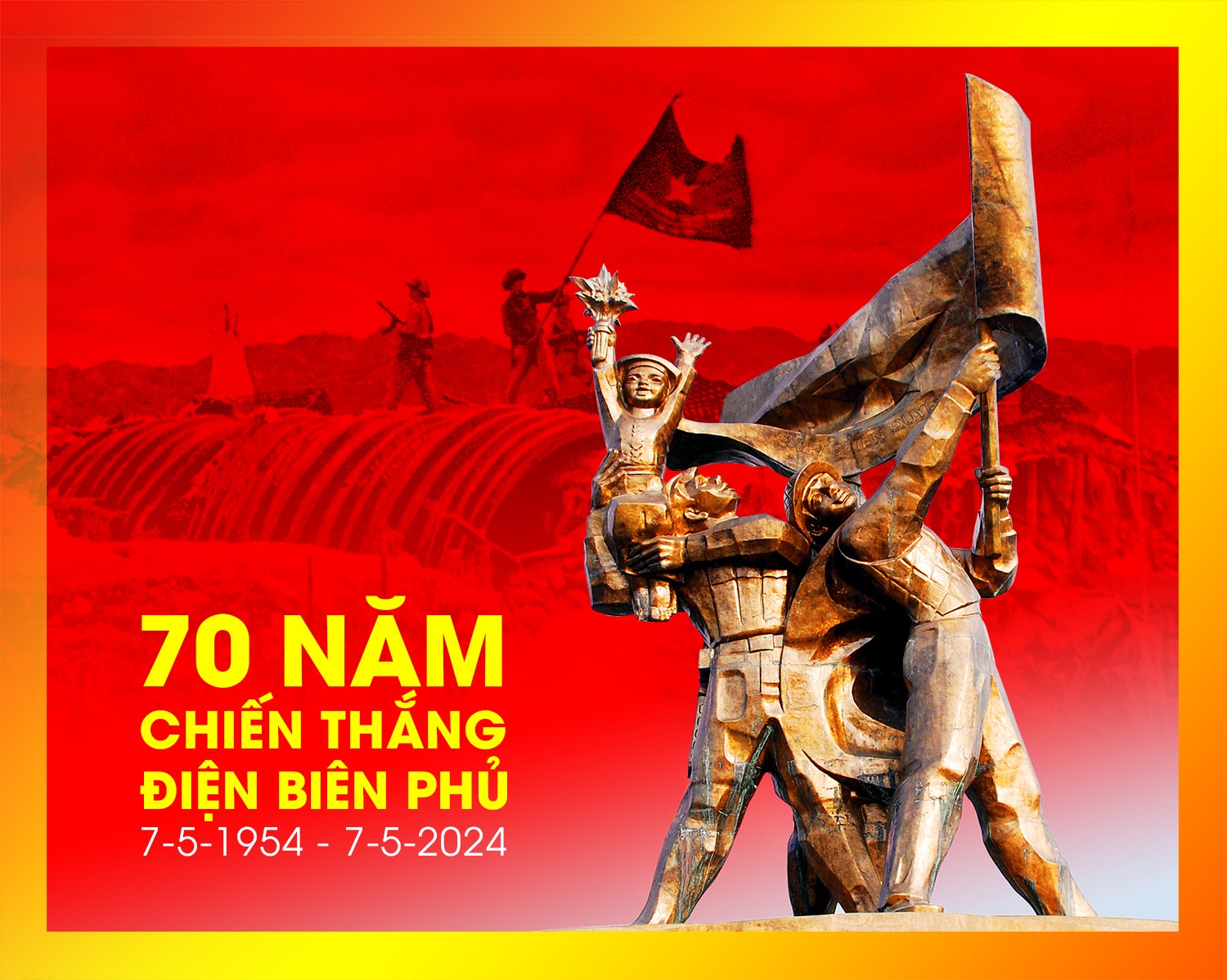






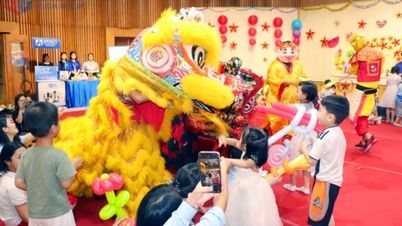



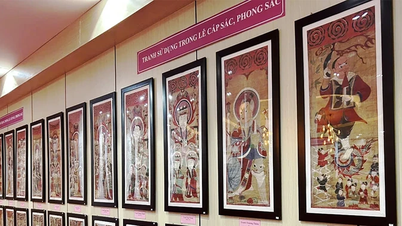
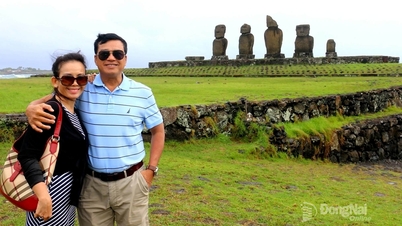




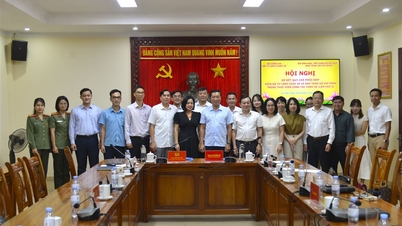
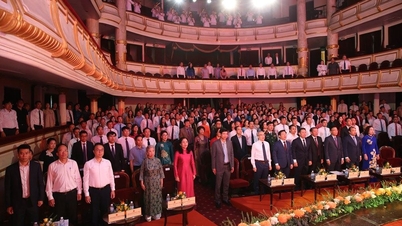


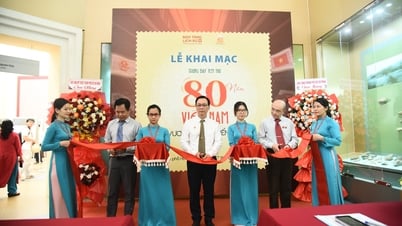
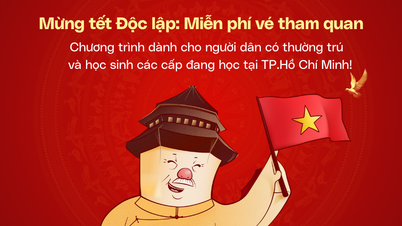





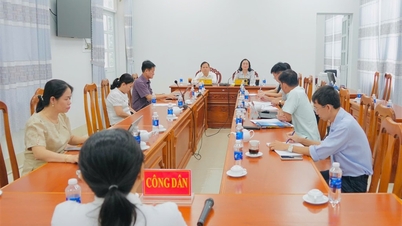

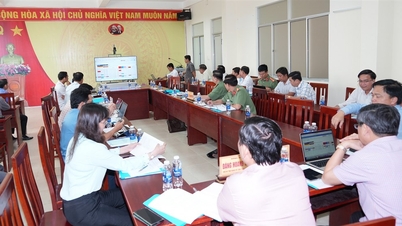




































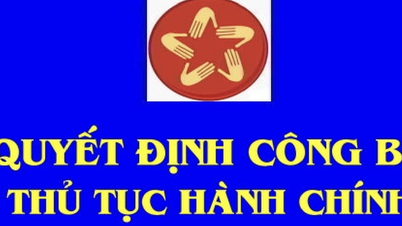
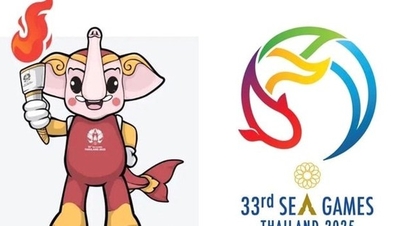


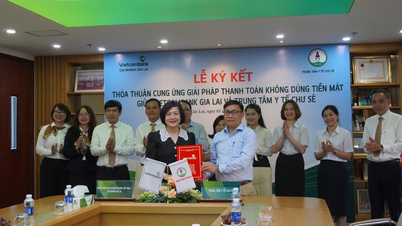

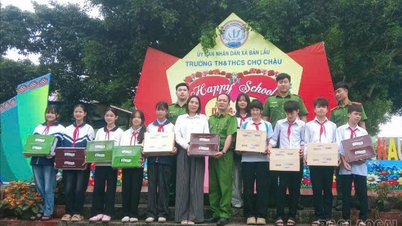

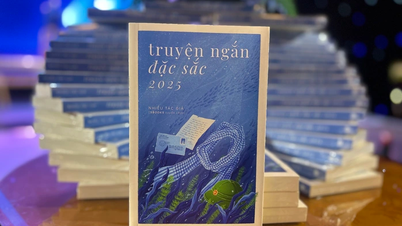


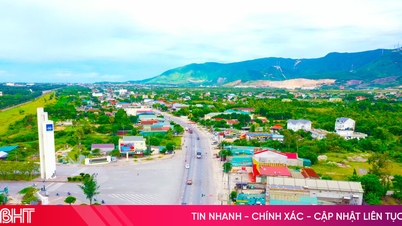

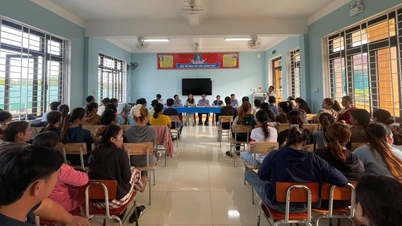













Comment (0)